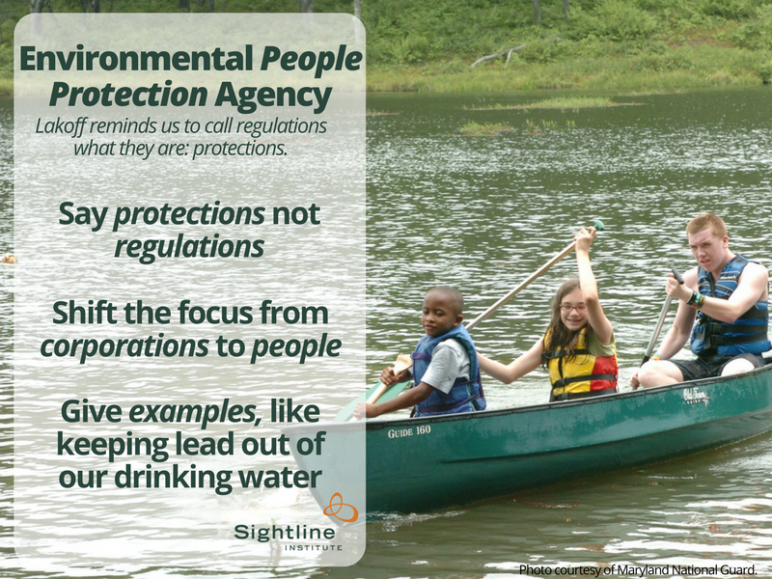
Quite a while back I wrote about how the Environmental Protection Agency should be renamed the Environmental Protection Army, with the idea that the name might prompt people to take its role in protecting American people more seriously—on a par with the way they see (and fund, staff, and empower) the military.
Call it what we will, it’s time now again to revisit the reasons majorities of Americans of all political stripes believe in a strong EPA. In a recent Reuters poll, just 19 percent of US voters said they would like to see the agency “weakened or eliminated,” while a robust 60 percent favor keeping it as is or strengthening it under incoming President Donald Trump.
I’m not holding my breath for “Agency” to be replaced with “Army.” But the words we use to talk about the EPA and what it does matter. As George Lakoff reminds us, for example, we should always say protections not regulations. As the cognitive linguist and political strategy guru explains:
The term “regulation” is framed from the viewpoint of corporations and other businesses. From their viewpoint, “regulations” are limitations on their freedom to do whatever they want no matter who it harms. But from the public’s viewpoint, a regulation is a protection against harm done by unscrupulous corporations seeking to maximize profit at the cost of harm to the public.
Imagine our minority President saying out loud that he intends to get rid of 75% of public protections. Imagine the press reporting that. Imagine the New York Times, or even USA Today headline: Trump to Eliminate 75% of Public Protections. Imagine the media listing, day after day, the protections to be eliminated and the harms to be faced by the public.
The Environmental Protection Agency is about just that—protections that keep people safe from harm. It’s not just about wildlife and habitats—though protecting the people we love and our way of life involves safeguarding the places we live, all the natural places we share, and our water and air, the atmosphere, and planet.
Top takeaways:
- Always say “protections” instead of “regulations.”
- Remember: Protections emphasizes the viewpoint of people—the public—instead of the corporate viewpoint.
- Remember: Regulations is abstracted policy-speak. Protections is plain language, accurate, and simple.
- Give real, concrete examples that people can relate to—and that we rely on: keeping lead out of our drinking water; making sure our rivers and streams are safe to fish and swim in; preventing oil spills; keeping our food free of harmful pesticides.
Who said it best? “The EPA is here because the American people demanded it. We stand between pollution and our people.” Find out here.


Comments are closed.